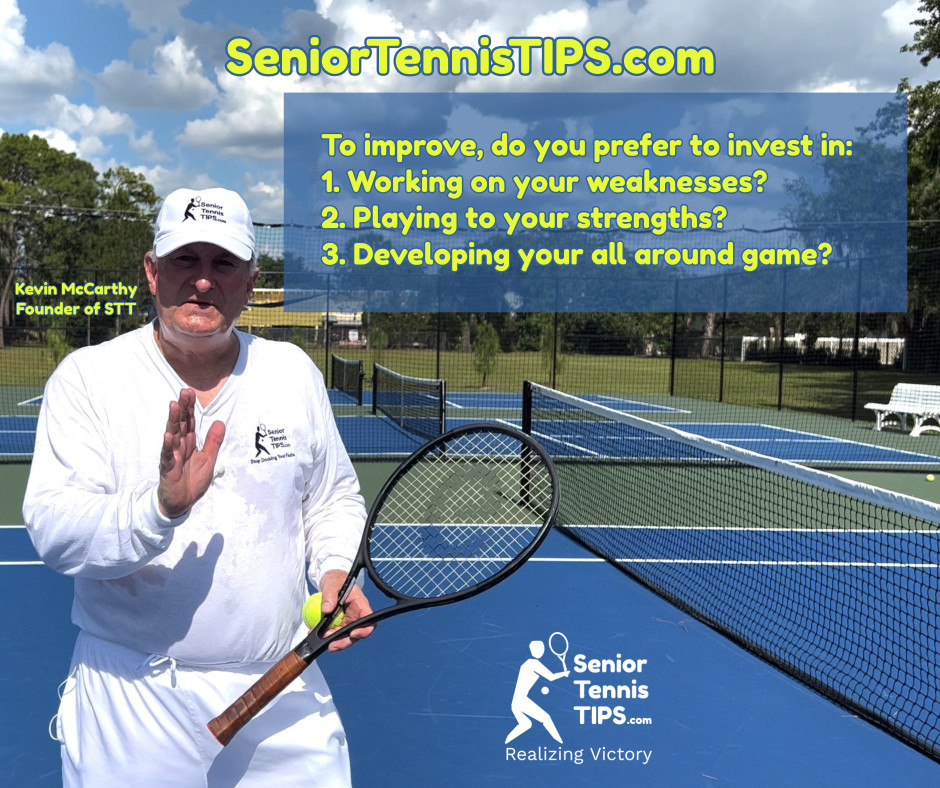Which is your dominant approach to improvement?
When it comes to investing in your personal (or tennis play) improvement, let’s explore three differing schools of thought. One of the three is your go-to approach, perhaps even your primary life orientation for growth and development. On-Purpose®, you’ll discover, offers a superior strategy based on a bigger picture with specific actionable steps based on your purpose, vision, missions, and values (PVMV).
First is the “Work on your weaknesses” school of thought with the motto “You’re only as strong as your weakest link.” By shoring up your weaknesses, you’re less likely to be exploited.
In contrast is the “Play to your strengths” school. Howard Gardner’s 1983 book, Frames of Mind: The Theory of Multiple Intelligences, set the stage for Donald Clifton’s 1995 book Soar with Your Strengths and the popular StrengthFindersassessment tool. This theory advises that elevating your strengths gets you further in life than improving weaknesses.
Third is the classic liberal arts educational model of “Be a well-rounded person.”This temperate Goldilocks’ lifestyle of “not too hot and not too cold” advocates a well-balanced life as the key to improvement.
Which of the three schools of thought do you most practice? Each has merits and they’re not mutually exclusive. Within your upbringing, your parents, teachers, and mentors were primarily operating in one of the three. You likely adhere, perhaps subconsciously, to the one closest to how your were raised. The other two being in your backup and tertiary next-best approach. Your preferred means to improvement highly influences how your conduct yourself, raise your children, and lead with friends and colleagues.
Your 2-word life purpose opens a new dimension of improvement to free you from the limitations of each belief. Fortifying weakness, relying on strength, and rounding out one’s self are not schools of thought. In the context of your purpose, they’re three useful techniques in the improvement adventure of aligning your purpose, vision, missions, and values to be on-purpose. PVMV are foundational to freeing us from these elementary schools of thought by elevating our game to a new plane.
As an on-purpose person in creation, you’re no longer bound to tactics pretending to be strategy. Draw upon whichever of the three methods is most appropriate and beneficial for delivering a satisfactory rate of return on your life, career, or business improvement investment plan. You’ll develop faster, further, and with greater peace and prosperity.
Be On-Purpose!
Kevin
